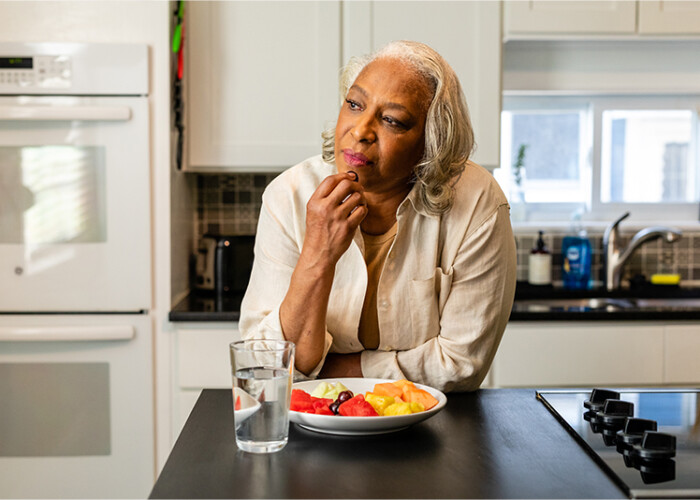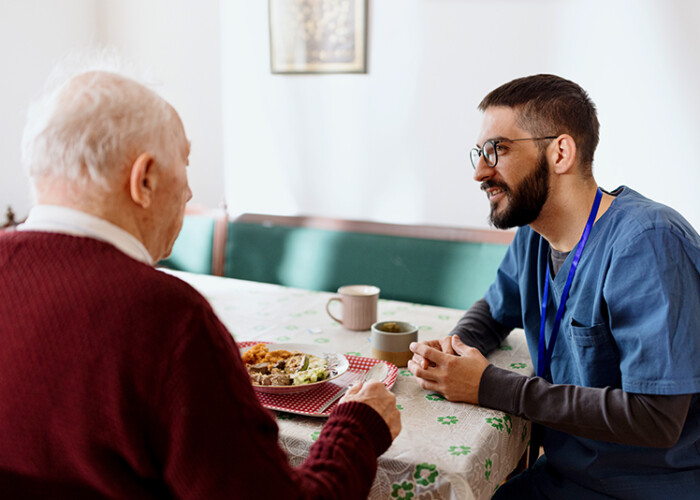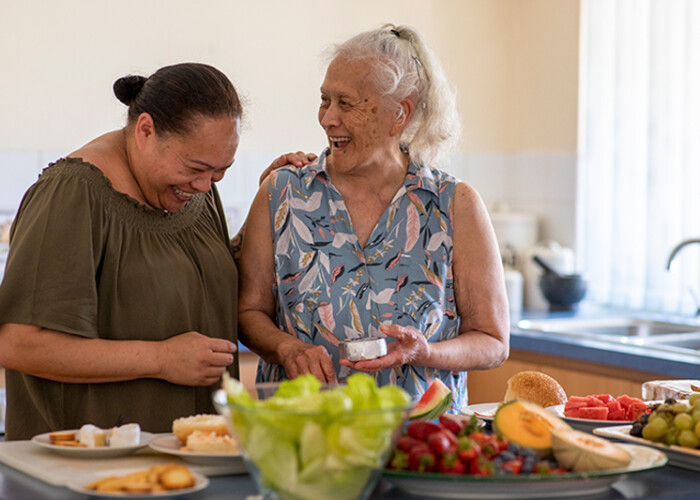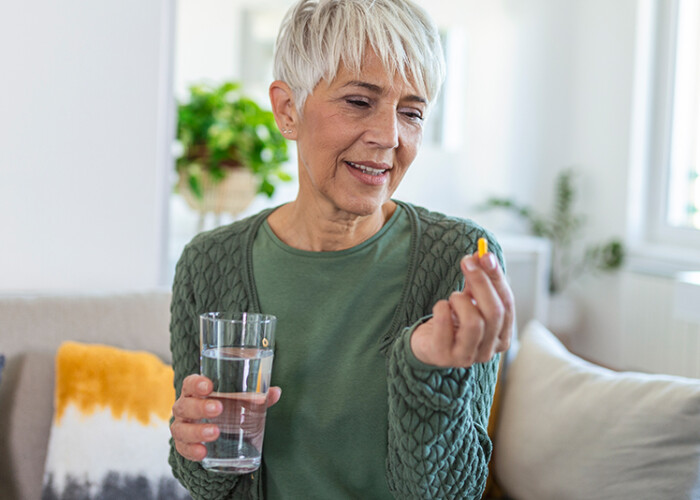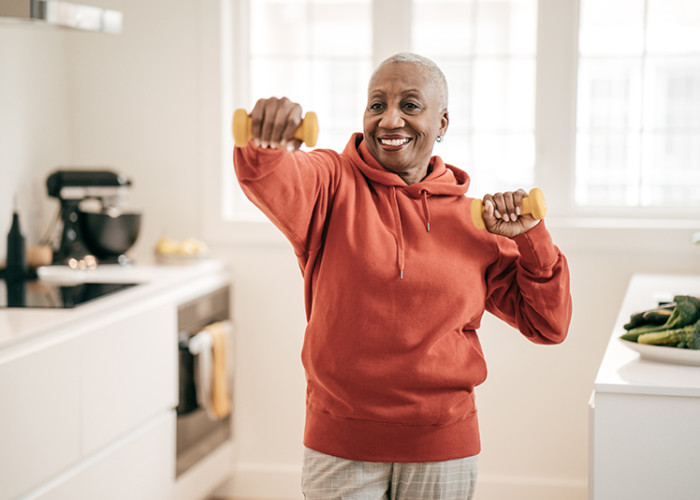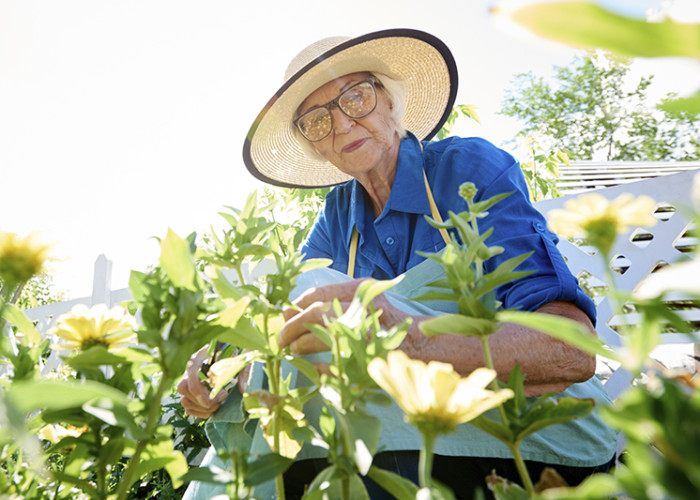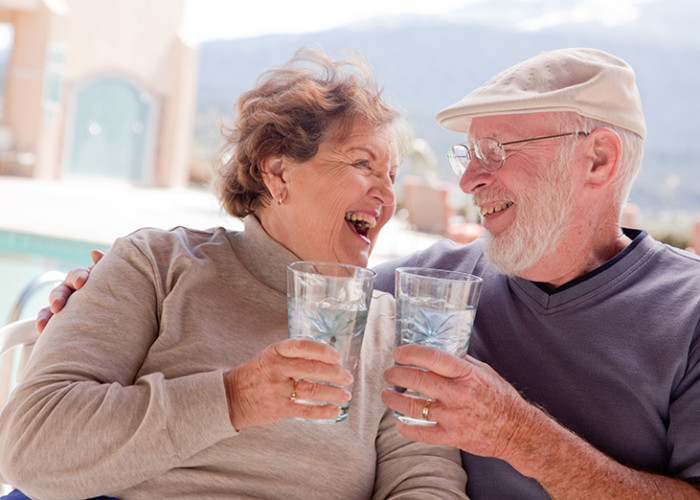Senior Nutrition
Why Won’t Mom Eat? It Might Just Be an Eating Disorder.
If you’ve been wondering, “Why won’t Mom eat?” it’s important to know the signs of an eating disorder.
Changes in appetite and weight are often considered a normal part of aging. But if you find yourself asking, “Why won’t Mom eat?” it’s important to consider all possible reasons. While factors like medication side effects, dental concerns, or reduced mobility can certainly play a role, there’s another potential cause that often goes unnoticed: eating disorders in seniors.
Noticing Changes in a Senior’s Eating Behaviors? Here’s Why.
There are a number of reasons that could be causing changes in a senior’s eating behaviors.
Following the indulgence of the holiday season, many of us decide to cut back on consumption of calories. But when an older adult does not want to eat altogether, or is making unbalanced or unhealthy dietary choices, it’s important to look for the reason behind changes in a senior’s eating behaviors. This is a first and crucial step in promoting healthier eating habits.
Get Cooking With These Creative Dementia Care Activities
If there’s one thing that connects us all, it’s food! Think about how many cherished memories have been made through the years that included food at the center of them all: holiday meals, birthday parties, wedding celebrations. Even ordinary days include routines that become ingrained in us around food, from that first aromatic cup of coffee in the morning to a shared bowl of buttery popcorn with family while watching a show on television.
It really is no surprise that food is not just a necessity for our physical health, but often a powerful way to connect with someone with dementia. Here are several creative dementia care activities you can try to help spark memories while engaging all the senses through food.
Storytelling. Pull out an old cookbook and look through the recipes together to determine if any spark memories. … Read More »
The Most Important Vitamins for Older Adults
With all of the options on store shelves, which are the most important vitamins for older adults?
Minerals, vitamins, and supplements – oh my! Nearly three in four older adults are taking them; but are they really needed as we get older? After all, a balanced and healthy diet offers older adults essential nutrients. But there are specific areas of deficiency that may make a case for the addition of a supplement. Make sure to talk with the doctor before making any changes, but with their recommendation or approval, consider the following important vitamins for older adults:
Calcium
Aging bones are susceptible to breaks and fractures when calcium intake is inadequate. This is especially true for post-menopausal women, with a full 50% of those over age 50 breaking a bone because of osteoporosis. However, men are also in … Read More »
Improving Health and Wellbeing for Seniors With Six Simple Steps
Improving health and wellbeing for seniors is easier with these tips.
Though New Year’s Day is still months away, who says resolutions should only be made at the start of the year? There is no time like the present to start a new habit or goal, especially when it comes to improving health and wellbeing for seniors.
We have six strategies you can implement today. Pick one to begin, or jump right into all of them to attain the greatest benefit:
Make an appointment for a physical. Rather than waiting for an injury or illness to call the doctor, a yearly check-up is a great way for seniors to stay on top of their health and potentially prevent issues before they occur.
Get physical. With the physician’s approval and recommendations, kick off a new exercise routine – together! Working out … Read More »
Discover the Many Benefits of Gardening for Older Adults
Help someone you love discover the incredible benefits of gardening for older adults.
The cool dampness of rich soil. The warmth of the sun’s rays. The joyful trills of songbirds. Gardening has the capacity to engage so many of our senses, and offers a great deal of positive benefits to seniors. Regardless of ability level or any space restrictions, there is always a way to help those you love reap the many benefits of gardening for older adults through the joys of planting outdoors or indoors, watching new growth appear, and harvesting.
Add This to Drinking Water to Potentially Fight and Prevent Hypertension
This one simple addition to your next glass of water may just prevent hypertension.
Great news for the more than 116 million Americans who are fighting hypertension – and, for the rest of us who’d like to prevent hypertension. Recent studies shared in the Journal of the American Heart Association link calcium and magnesium to lowered blood pressure, and it might just be as easy as adding a certain combination of minerals to drinking water to benefit the entire population.
The surprising results of the research uncovered that those who drank salinated water, compared to those who drank fresh water, experienced lower blood pressure levels – believed to have been the result of the positive benefits of calcium and magnesium outweighing the negative effects of the sodium.
And though the resulting lowered blood pressure readings were small, Dr. … Read More »
4 Ways to Promote Purpose and Meaning for Seniors
Promote purpose and meaning for the seniors in your life with these ideas.
Think of a typical day in the life of a senior loved one. Hopefully it provides several positive and enriching experiences: enjoying breakfast, engaging in a fun hobby or interest, visiting with a friend or family member, watching a favorite TV show. Nevertheless, there’s a difference between positivity and purpose and meaning for seniors; and the need for a life rich with significance and purpose is starting to become more evident, particularly in the life of aging parents.
Viktor Frankl , world-renowned psychiatrist and survivor of the Holocaust, shares poignantly, “What matters is not the meaning in life in general, but rather the specific meaning of a person’s life at a given moment.”
For people whose identity has been focused on a career and raising … Read More »
How to Help Someone with Parkinson’s from a Distance
If you’re wondering how to help someone with Parkinson’s disease when you live out of the area, we have four suggestions for you.
The days when extended families lived together on neighboring plots of land are, unfortunately, a thing of the past in many cases. With loved ones spread apart, it’s not always possible to provide the caring, hands-on care and support that older family members often need, especially when a chronic health condition – like Parkinson’s disease – creates additional concerns.
Yet even from a distance, there are still plenty of ways to assist. The Michael J. Fox Foundation offers these tips on how to help someone with Parkinson’s from afar:
Get organized. Take and keep detailed notes about medications being taken, treatments, emergency contacts, and other aspects of the person’s care needs. A digital version of this … Read More »
Try These Tips to Help with Appetite During chemotherapy
Chemotherapy can affect how foods taste, but there are steps you can take to help.
Good nutrition is crucial during cancer treatment and recovery, yet not always easy to achieve. Appetite problems during chemotherapy are common, as a result of the way the treatment impacts how foods taste. Many people undergoing chemo treatment complain of a metallic aftertaste in foods, and this can even occur in plain water. When combined with another prevalent side effect of chemotherapy – nausea – sticking to a healthy diet can be a challenge.
Clinically known as dysgeusia, it’s a condition that affects as many as 65% of patients receiving chemotherapy, sometimes lasting for just a few days or even up to several months. Nutritionist Ginger Hultin, RDN, explains, “Taste changes can really turn people off to eating enough food. Patients can start … Read More »


